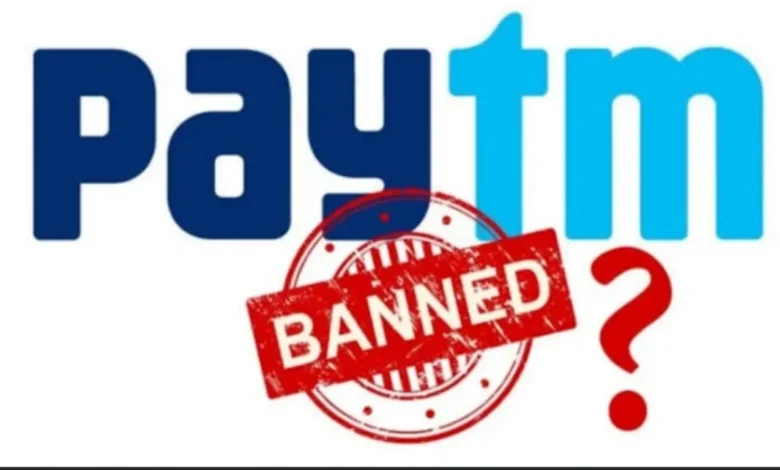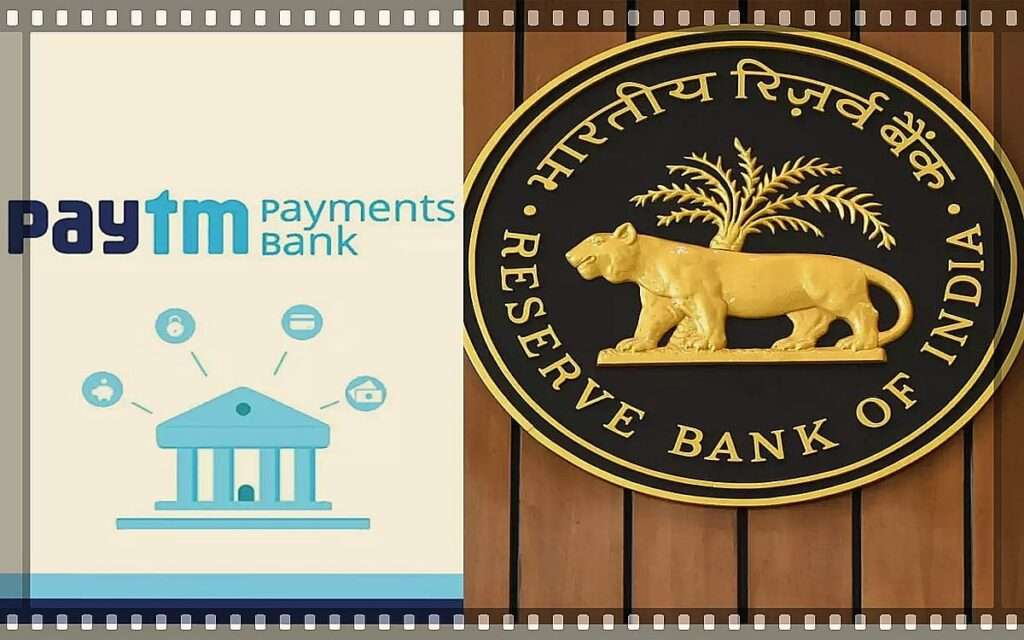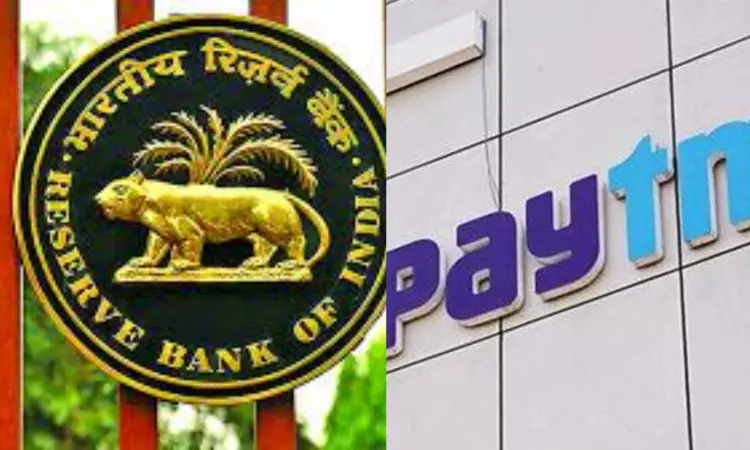RBI’s decision against Paytm has many possible ramifications and effects.

RBI’s decision against Paytm has many possible ramifications and effects; we discuss its causes as well as steps you can take to safeguard your cash.
Paytm was once at the forefront of India’s financial technology revolution. Therefore, any action by RBI may directly or indirectly impact most customers who use Paytm – this article explains more about it.
RBI’s decision against Paytm has many possible ramifications and effects; we discuss its causes as well as steps you can take to safeguard your cash.
Paytm was once at the forefront of India’s financial technology revolution. Therefore, any action by RBI may directly or indirectly impact most customers who use Paytm – this article explains more about it.
On Wednesday (January 31), the Reserve Bank of India (RBI) banned Paytm Payments Bank from offering essential services including wallets and accounts beginning March, effectively crippling its operations.
Payments Bank does not violate their licence to operate; rather, this decision limits their operations significantly.
However, officials at the central bank have allowed customers to withdraw or use balances “unrestrictedly, up to their available balance”.
Paytm was the symbol for India’s fintech revolution and boasts a substantial clientele base. According to its website, Paytm Payments Bank boasts more than 100 million KYC-verified authentic customers.
FASTag claims they are the world’s largest issuer of FASTag with over eight million units reportedly issued, according to their website.
Vijay Shekhar Sharma, Paytm’s chairman and founder, serves as part-time chairman of its bank.
What information does an RBI direction contain?
Paytm Payments Bank has been barred from offering virtually all of their essential services on or after February 29 due to “persistent non-compliances and material supervisory concerns”.
“Banks will no longer offer services such as money transfers (AEPS, IMPS etc), BBPOU and UPI facility on or after February 29, 2024” according to the RBI’s announcement.

As per its ruling, accounts linked to One97 Communications – its parent company as well as Paytm Payments Services – and Paytm Payments Services should be closed down no earlier than February 29th.
Settlement of pipeline transactions as well as nodal accounts related to transactions completed prior to February 29 should conclude on or before 15 March, and no further transactions will occur later than announced by the central bank.
Customers can access or withdraw funds stored in multiple Paytm instruments?
According to the RBI, Paytm account balances may be withdrawn or utilized unrestricted up to their available balance.
The RBI statement fails to mention other alternatives, such as loans or bill payments, mutual funds digital gold credit cards as possible solutions.
What has Paytm said regarding RBI’s move?
One97 Communications Ltd announced on February 1 that, following Paytm shares falling by 20% on trading exchanges, immediate steps had been taken to comply with RBI directions and work with regulators in addressing their concerns as soon as possible.
Based on the nature of its resolution business, analysts predict that an RBI decision could have an annual EBITDA (earnings before tax, interest depreciation and amortization) impact of between 300-500 million for several years.
One97 Communications also indicated in an exchange filing that, going forward, they plan on working with banks other than Paytm Payments Bank but will no longer work together directly.
“Paytm Payment Gateway (online merchants) continues to offer merchant acquiring services through partnerships with major banks across India as well as expanding third-party bank partnerships,” it stated.
Paytm announced that its offline payment network services, such as QR, Soundbox and Card Machine will continue as usual while being open to accepting merchants that use offline payments from new merchants as well.
What prompted the RBI’s actions against Paytm?
The RBI did not give reasons for its decision, although Paytm Payments Bank has been under close watch by them since 2018.
Sources indicate the RBI may have taken this move due to concerns related to KYC compliance and IT issues. Officials from the central bank are worried about any bank or institution organization risking depositor funds by engaging in activities which expose their money to such situations.
Paytm Payments Bank and its parent OCL were recently subject to an RBI investigation for failing to adhere to information security requirements, providing access to Chinese-based entities who indirectly owned stakes in Paytm’s parent company and therefore indirect shareholders of its payments bank subsidiary.
Due to our inability to address these issues on multiple fronts over time, the RBI recently took action, which has proven valuable and taught us lessons.
Antfin, an associate of Chinese conglomerate Alibaba and shareholder of One97 Communications — as at December 31st it held 9.89% according to exchange records – has become increasingly sensitive due to India-China tensions over recent months, prompting increased scrutiny by Indian regulators of Chinese investments into Indian firms.
What other steps have been taken by RBI against Paytm in the past?

Paytm Payments Bank was fined Rs 5.39 crore in October 2023 by the Reserve Bank for failing to comply with regulatory requirements, such as finding the beneficial owners of entities it onboarded for payout services; monitoring transactions involving payouts; conducting risk analyses of entities using its payout services; exceeding day’s end balance limits in some customers’ advance accounts and failing to report an incident of cyber security within its terms of compliance; exceeding day end balance limits in some customers’ advance accounts and failing to timely report an incident related to cyber security; among many other violations.
In March 2022, the RBI ordered Paytm Payments Bank to immediately cease onboarding new customers after its Comprehensive System Audit report and Compliance Validation report from external auditors identified “persistent noncompliances and continuing material supervisory concerns in the bank”, necessitating further supervision; as announced on January 31.
Prior to 2022, the central bank observed certain methods employed by companies for customer acquisition that involved KYC compliance regulations.
The RBI also expressed concern regarding the tenuous relationship between Paytm Payments Bank and its parent company One97 Communications (OCL). Payments banks must remain independent from promoter-related group entities such as OCL; 49% of its share was owned by OCL while 51% belonged to Vijay Shekhar Sharma himself as founder of Paytm.
Allegedly, payments by the bank did not meet the requirements for Rs 100-crore net worth threshold and that it exceeded the limit of Rs 1 lakh deposit per payments bank at that time.




